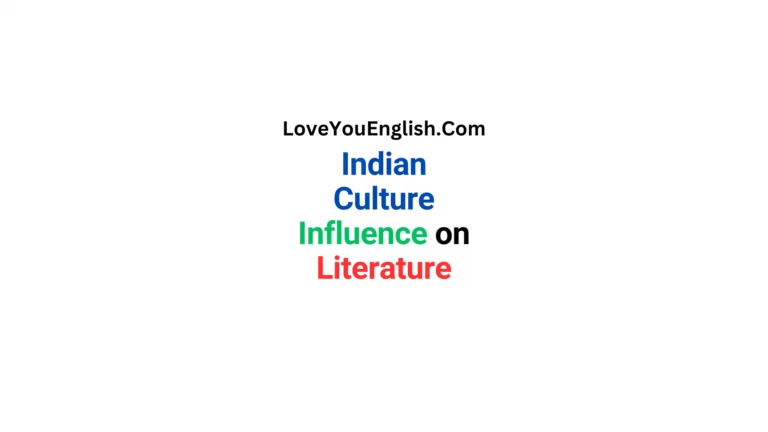Cultural Identity in Postcolonial English Literature
Postcolonial literature explores the experiences of people in former colonies, focusing on themes like identity, culture, and resilience. One major theme in this type of literature is cultural identity, which shapes how individuals and communities see themselves. I’ll explain how postcolonial literature represents cultural identity and highlights famous works and authors on the topic.
What is Postcolonial Literature?
Postcolonial literature refers to books and writings by authors from countries that were once colonized. These works discuss how colonization affected people’s lives, especially their identities, cultures, and histories. Themes like resistance, cultural preservation, and the struggle of living in a colonial world often appear in these stories.
The term “postcolonial” mainly describes the time after a country gains independence. However, it also includes the lasting effects of colonial rule on society. Writers from places like Africa, Asia, and the Caribbean have all contributed to this genre.
Understanding Cultural Identity
Cultural identity is the sense of belonging to a specific culture, shaped by traditions, languages, beliefs, and values. For many, it is a source of pride and influences how they see themselves and others.
In postcolonial literature, cultural identity often becomes a point of conflict. Colonized people were forced to adopt the colonizer’s culture, leading to a loss of their traditions and languages. Many postcolonial stories focus on the struggle to reclaim these lost identities.
The Effects of Colonization on Cultural Identity
Colonial powers imposed their languages, cultures, and values on the people they ruled, often erasing or suppressing native traditions. This process, known as cultural imperialism, made colonized people feel their ways of life were inferior.
Even after independence, the effects of colonization remain. Postcolonial literature explores how individuals and societies work to rebuild their cultural identities despite this historical oppression.
Key Themes of Cultural Identity in Postcolonial Literature
Loss and Recovery of Identity
Colonialism created identity crises for many individuals, as they were caught between their native culture and that of the colonizers. Many abandoned their traditions, believing the colonizers’ ways were superior.
Hybridity and Cultural Mixing
Hybridity refers to the blending of colonized and colonizer cultures. This mixing creates both challenges and opportunities for forming new identities.
-
- Example: In Salman Rushdie’s Midnight’s Children, the main character represents the fusion of Indian and British cultures, showcasing the complexities of cultural mixing.
Language and Identity
Language is a key part of cultural identity. Under colonial rule, native languages were often suppressed in favor of the colonizer’s language. Many postcolonial writers use the colonizers’ language, like English, but adapt it to reflect local cultures.
Colonial Legacy and Memory
The trauma of colonialism often lingers in the memories of postcolonial societies. Literature explores how these memories shape identity and history.
-
- Example: Jean Rhys’s Wide Sargasso Sea addresses the psychological and cultural scars left by colonial rule in the Caribbean.
Resistance and Assertion of Identity
Resistance to colonialism often involved reclaiming cultural identity. Postcolonial literature celebrates traditions, languages, and values as acts of defiance against colonization.
-
- Example: Arundhati Roy’s The God of Small Things critiques colonial history while exploring the resilience of cultural identity.
Prominent Postcolonial Authors
- Chinua Achebe (Nigeria)
Achebe’s Things Fall Apart highlights the clash between African traditions and British colonialism, focusing on the importance of preserving cultural identity. - Salman Rushdie (India/Britain)
Rushdie’s Midnight’s Children explores the effects of colonialism on modern India, blending Indian and British cultural influences. - Jean Rhys (Caribbean)
In Wide Sargasso Sea, Rhys examines the complexities of identity and racial tensions in a postcolonial world. - Ngũgĩ wa Thiong’o (Kenya)
Ngũgĩ writes in African languages to preserve cultural heritage. His works, like A Grain of Wheat, focus on the impact of colonialism on Kenyan society.
Conclusion
Cultural identity is a central theme in postcolonial literature, where authors examine the effects of colonization and the struggle to reclaim and preserve identity. Through stories of loss, resistance, and transformation, these works show that cultural identity is not fixed but always evolving.
Reading postcolonial literature helps us understand how colonial history still shapes cultures and identities today. These stories remind us of the resilience of individuals and communities in redefining themselves in a postcolonial world.
More topics:
- Exploring Feminist Themes in Modern English Literature
- Famous Poets of English Literature and Their Masterpieces
- The Role of Shakespeare in Shaping English Literature
- Exploring Themes of Love and Loss in English Literature
- The Role of Humor in Shakespeare’s Comedies
- The Concept of Utopia in English Literature
- How to Approach Literary Criticism
- Women Writers in English Literature








